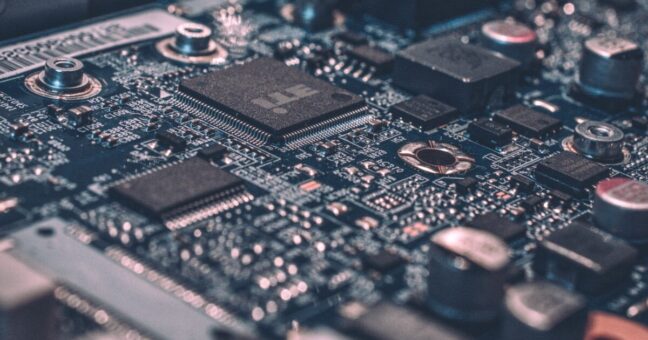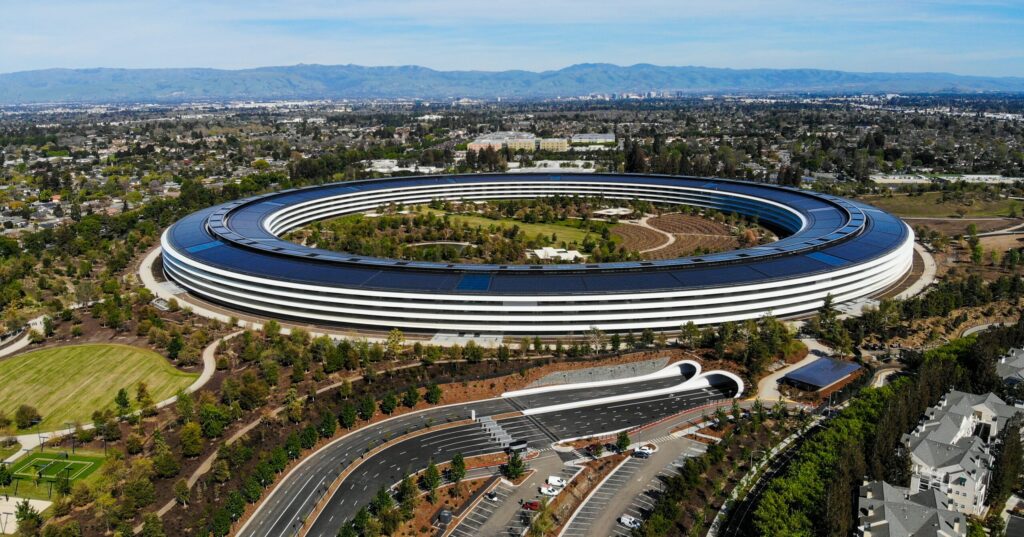Computer Chips and How the Global Shortage is Shaking things Up

The global shortage of computer chips has seen tech firms struggle with production. The short supply of semiconductors, precipitated by the COVID 19 pandemic, continues to hamper the production of computer equipment and other electronics around the world.
Tech giants are currently experiencing what many have described as “an unprecedented slow down in the production of computers”, and prices of electronics are feared to skyrocket in the coming days.
Samsung, Apple, Cisco, Tesla, and Ford are some of the big names that have been hit hard and are struggling to meet the high demand for their products and the high costs of production.
It’s beyond question that these tech firms consume a chunk of semiconductors into their portfolios of flagship products which range from 5G equipment to electric cars.
What the heck are computer chips made out of?
Interestingly, as “cheaps” or “chips” as they sound, computer chips are made out of Silicon, a luxuriantly available substance that is found in 90% of all minerals.on earth, making it such “a humble mineral that transformed the world“, as elegantly presented by the BBC’s Made On Earth.
The use of computer chips

Computer chips are everywhere. They are also in your hands right now.
Your laptop, tablet, cellphone, all literally contain much smaller computers, called chips. They are the ones responsible for performing all computational tasks of your device.
The definition of computer chips over the years has changed, creating a thin line between semiconductors and resistors and chips.
There are also variants in chips, from memory chips to microprocessors to integrated chips. For example, the Silicon Valley tech giant, Apples’s iPhone 6, runs on the A8 chip which boasts of 2 billion transistors. That also tells you how extremely tiny, a chip is and can be. In fact, even microchips are powered by several of these chips.
In 2019 alone, more than 630 billion chips were estimated to have been manufactured worldwide. Computer chips not only power computer-like stuff, but they are also used in cars, ATM machines, printers, digital, cameras, alarm clocks, and game consoles, to mention a few. It’s therefore not surprising that these chips have become very scarce — their demand is terrifically high.
Why computer chips are in high demand more than ever before
You might ask yourself, “why do computer chips have such an exponentially higher demand than even the much needed COVID 19 doses?” The simple answer is, computer chips are sought after in every part of the world, and they sit in all kinds of electronics; from the war-ripped HIPCs to the G20s, from watches to planes.
Below are some of the paradigm shifts and new conventions in technology, that have contributed to the surge in demand for computer chips.
Artificial Intelligence
The growing preference for “science-fiction-like” characters, objects and experiences, is slowly but steadily pushing the world towards the automation of everything.
All sorts of robots, and humanoids such as the award-winning Sofia, developed by Hong Kong-based company Hanson Robotics, are perceived to be better than their “human demigods” in terms of agility, and rapport, in some situations.
Like never before, COVID19 has boosted the use of these “human successors”, to save the lives of those at the front-line of controlling the pandemic. As such, we might witness the increased use of these robots in public spaces, which will definitely trigger the need for more computer chips.
Cloud Computing
Cloud services such as storage, web servers and software applications have changed the way we store and access information over the internet. With the cloud, much less resources are used on the user’s end, and greater safety and accessibility from anywhere in the world is realized.
With these great benefits that come with cloud computing, one cannot underestimate the need for more hardware resources such as memory and microprocessor chips to sustain the booming cloud.
EMV Chip Cards
You may have noticed that your recent credit or debit cards don’t have a magnetic strip and they are now rather swiped through the side of the card reader (machine), not inserted into the machine. The real magic behind this technology is the chip.
EMV stands for Europay, Mastercard, and Visa, the payment card companies that developed this standard. The edging out of magnetic trips by EMVs is to ensure secure transactions and less credit card fraud.
Automation
The automation that comes with smart home appliances and new models of automobiles, involves a great deal of digitization. This translates into high demand for semiconductors.
How Tech companies are coping with the computer chips crisis

Scaling up
In a bid to bridge the chip-gap, tech companies are looking into all possibilities to offset the shortage, not ruling out mergers. Although we are yet to see any such “big weddings”, there’s a lot being done by semiconductor companies and many economies around the world to ramp-up production.
Quantum Computing
This next generation of computers promises to relieve the semiconductor industry from the overwhelming demand as well as the computer assembling industry from the ongoing shortage of chips.
Quantum computers make use of quantum dots which are manufactured from Gallium Nitride, Silicon Carbide, and other materials. This is due to their ability to endure heat, run faster, and perform better in high-power machines for solving super complex computational problems at greater speeds.
New Computer chip manufacturers
There are “new-kids-on-the-block” in the arena of chip manufacturing, and Apple is one of them. No doubt, Apple is truly a Silicon Valley firm, as it is set to ditch the Intel processor in favor of the M1 chip, their first owned processor which is built for Macs, using the technology from the Taiwan Semiconductor Manufacturing Co (TSMC).
4 comments
This is brilliant!!
Thanks Tim for sharing this useful information.
Thanks for the thumbs up, Michael!
Wow I like this. Keep it up
Hi Philemon, we are happy to hear that! we’ll keep getting better.